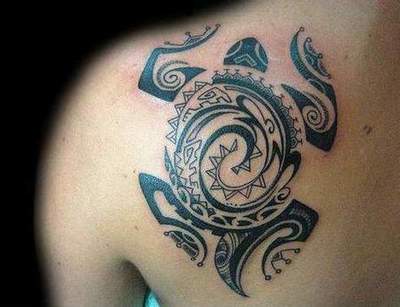Life in an Indian sect, which still makes female circumcision
• Life in an Indian sect, which still makes female genital mutilation
When Bilqis says about circumcision of her daughter, she returns again and again to their feelings, sometimes repeating the same phrase. Frail 50-year-old woman, a doctor by profession, advocates a procedure known in her small but rich Shiite Muslim community in India as female circumcision. She says that it is "only a small incision, no harm." However, she feels regret and guilt for having forced his daughter to pass through the operation that the UN formally considers a violation of women's rights.
"This truth is there is nothing wrong, and it does not change anything", - repeats Bilqis. A woman requested anonymity, calling only his spiritual name, because of the personal nature of the information. She adds: "I have no doubt that it does not help ... If now I was the youngest daughter, I would never have made her circumcision."
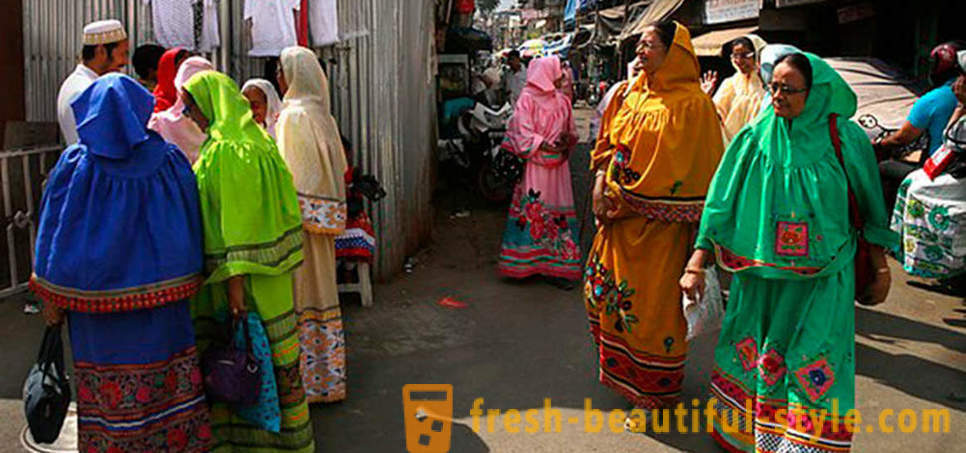

The dispute between Bilqis and her community Daudi Bohr reflects flare up debate about how to treat a tradition that is almost impossible to eradicate. According to UN figures, at least 200 million girls and women today have gone through this or that female circumcision procedure. This figure is 70 million more than in 2014, due to the increasing number of cases and because of new statistical data. The UN expects that the number of victims of cruel custom will grow significantly in the next 15 years due to population growth.

In view of such a prospect in February, scientists have proposed in the respected international publication Journal of Medical Ethics allow a small incision in the female genitalia to observe cultural and religious traditions, without sacrificing the health and welfare of girls and young women. This approach has already been used in the sect Bohr and causes a fierce debate.

"They always say that it's just a cut and just touch, but there are times when it ends very bad", - says Masuma Ranalvi, which last year raised the topic of female circumcision in their community by signing several online petitions the requirement to ban the procedure. Ranalvi recalls that when she was seven, her grandmother promised her candy and ice cream. Instead, she was taken to a dark room in the alley. We pulled up her dress, and bound his hands and feet. There was a sharp pain. She came home in tears.
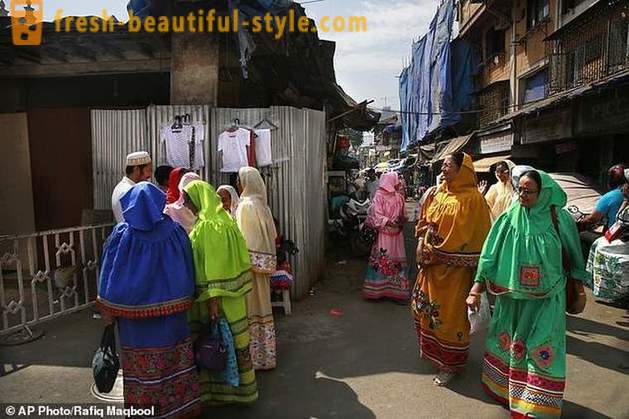
She did not realize what had happened until early thirties did not read about what female circumcision. In India, there are no laws prohibiting female genital mutilation, and, according to Ranalvi, the letters that she sent the leaders of the community Daudi Bohr remained unanswered.
Daudi Bohr - influential trading community of about a million people, concentrated mainly in Mumbai, but also living in the US and Europe. The winding back streets of the district sect Bohr religious men can be identified by the white hats, embroidered with gold thread, and beards. Women wear long colorful tunic to the ankles and a scarf on her head.

The community members Bohr known for their liberal attitude towards female education. However, when this community is tightly controlled by the clergy exclusively male, which sits on a hill in the south of Mumbai Malabar. Here, in the neighborhood of luxury homes Bollywood stars and billionaire businessmen, is a huge Saifi Mahal, the residence of the religious leader of the community, which is called Siedna.
When the boys and girls of the community Bohr reach puberty, they must swear allegiance Siedne, because his word is crucial in all areas of their lives, from weddings to funerals. From Mumbai to New York, medical professionals are blessed Siedny out to perform female circumcision, which is called Khatna. The custom originates from the roots communities in Yemen and is connected to the same custom in the countries of North Africa.

Female circumcision has become a bone of contention for the two men in the Bohr's community who can inherit the place of the former Siedny - his half-brother and a son. Stepbrother Siedny believes that it is time to put an end to this custom. Son, whom the majority of the Daudi Bohr recognized the new leader, said that the need to keep the tradition, and notes that community men also are circumcised.
"Our community is very clean when compared with other people, and we must preserve it so, - said Siedna Muffadal Saifuddin at a recent community meeting in Mumbai. - Men have to do it, and even the women have to do it. " Activists say it is impossible to compare one with the other, as there is sufficient scientific evidence that male circumcision is a beneficial effect on health.
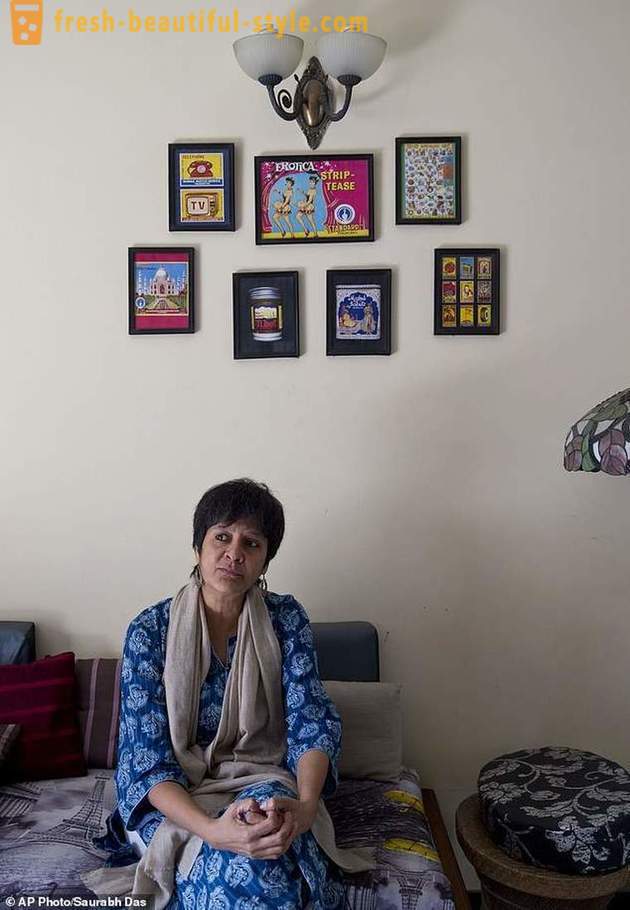
Traveling around the world, members of the community Daudi Bohr took their custom with them. 34-year-old Aleph, a social worker in the United States, recalled how her grandmother did Khatna her sister in a cold cellar in New York. It was ridiculous and painful. Aleph also asked not to indicate its full name, is opposed to the procedure itself and against its values. Older women from Daudi community called the clitoris "haraam ki Boti" - sinful flesh, the flesh that can cause a woman to get off the right path.
"It's horrible, it's disgusting that these are absolutely natural feel stand out for something dirty. The blame for their sexuality is always in our minds ... I'm not angry at her mother. I'm angry at the men who come up with such rules. "
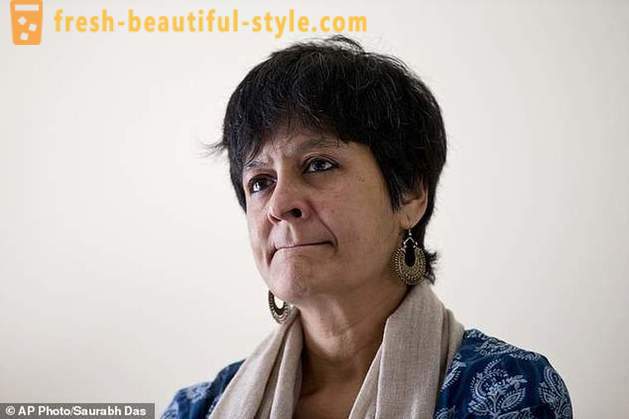
Bilqis, dressed in tight pants and sleeveless shirt, looks like the embodiment of the modern Indian woman. She lives in a luxurious apartment in a luxury residential complex with views of the landscaped gardens that is worth a lot in the city slums. She openly talks about his sex life, breaking taboos, deeply rooted in Indian culture. She grew up in a religious family Bohr in central India, being the only girl of 10 brothers and cousins. Her father wanted them all to have a good education. She almost hammered the fact that it must be a doctor. Her childhood was much more liberal than most Indian girls could dream. Her father never forced her to dress or behave in a certain way. Mother was much more silent, but also never forced the daughter to take the traditional female roles. Bilqis did not even go to the kitchen. "When I got married, I could barely boil an egg or make tea," - says the woman. She was circumcised as a child, but it remained only a vague recollection of it. It was not traumatic or painful experience for her, as she says, and does not affect adversely on her sex life.
However, as a doctor, she knew that circumcision was a little girl, which often makes the midwives or older women of Bohr's community, can be traumatic. She remembers that once led to her little girl, which made a very deep cut to her Bilqis prizhgla blood vessels. It has no religious permission to be circumcised. But in the past it gave out certificates of circumcision for women outside the community Bohr, who wanted to marry a man of her community, even if they never go through this procedure.
She tells her patients-women that circumcision offers no benefits and carries only the risk. However, by the time they turn to her with their mothers-in-law, they are usually already decided to do it. Fifteen years ago, she thought as well and did not experience any doubts. She says that she acted out of a sense of religious duty.
Bilqis said his daughter Samina, making it a little prick. The nurse cut off a thin piece of skin. The girl did not cry, said Bilqis. She recalls thinking that a social milestone is passed and that one of the duties she coped. Samina, who is now 22 years old, - a student of final year of one of the Ivy League universities in the United States. She has not had sex, which is not uncommon for girls her age in India. But, like her mother, she says this without hesitation, is typical of the majority of Indian women. Samina gradually resigns himself with the knowledge that she underwent female circumcision in seven years. "This is a very clear memory, - she says. - I remember thinking: why this woman approaches me, "There was no discussion or explanation of what happened?. Samina says that it does not hurt, but the memory made her feel uneasy, although she could not say exactly why.
The next time, when we were talking about it, she was 15 or 16 years old and she discussed it with the girls from the community Daudi Bohr at school. "Ask your mother," - they said. Samina did so. Her mother told her that it was the custom of their community. Then, spurred by the increasing Khatna discussion in the community, Samina began studying the issue of female circumcision Bohr. Initially, it was negative. She recalls thinking: "How can they do this? We educated women. "
Then came the anger. She says that many Bohr are made to believe that Islam supports this procedure, whereas no other Muslim community in India does not practice female circumcision. "Who are you in general such to control someone's sexuality? - she says. - I was very, very angry. " She quarreled with her mother and told her that she would never do this to my daughter. Mother accused of hypocrisy. But she no longer angry with the community than the mother.
Both women say that a very close relationship between them. They agree that the custom be canceled, but differ in opinions, how to do it. Bilqis is afraid that a few activists who speak loudly about it, but this tradition will drive further underground. But Samina does not want a slow and peaceful change, it wants religious leaders have opposed this procedure. "It will not stop, if you do not talk about it. We need to constantly talk about it as something that can not be done. This is the only way to deal with it. "





































